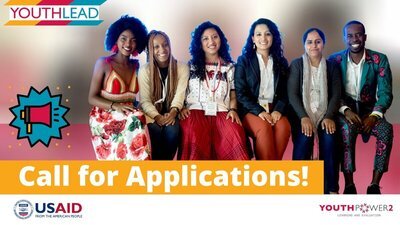The Council of Care leaders is a group of ten young leaders who have direct experience with alternative care (e.g. foster care, kinship care, etc.), and who are interested in advocating for the improvement of care systems. The members of the Care Leaders Council will play a vital role in supporting the implementation of the US government's Strategy, the Advancement of Care. Protecting and Caring for Children in Adversity (2019-2023) (APCCA).
Application deadline: 21 December 2020
The Council of Welfare Leaders is scheduled to start in March 2021 and will serve a one-year term until March 2022 (with the possibility of a second year extension, from March 2022 to March 2023). The Council of Welfare Leaders is supported by YouthPower2: Learning and Evaluation (YP2LE), a USAID-funded activity focused on building and disseminating the evidence on the Positive Youth Development (PYD).
Roles and responsibilities of the members of the Care Leaders Council
This Care Leaders Council will allow young people from various countries who have experience with alternative care to collaborate with each other and USAID to identify ways to increase the effectiveness of care systems, as well as to develop their own capacities as young professionals and advocates on these issues.
The general role of the Council of Welfare Leaders is:
- Make recommendations to increase the relevance and effectiveness of the activities in the Inter-Agency Implementation Plan for Protection of Children in Adversity (APCCA).
- Provide information on USAID-funded alternative assistance, evaluation and research activities, as well as advise on possible future activities for USAID to consider in these areas.
- Provide recommendations to USAID on how to adequately and effectively support the development, strengthening and sustainability of groups working with those who have left alternative care; AND
- Support the development of resource materials and training on the issues and challenges of alternative care systems.
During the year, the members of the Council of Welfare Leaders:
- Attend quarterly Care Leaders Council meetings (virtually) to discuss key topics of interest to USAID and policymakers.
- Convene as needed to provide information and feedback on policies and procedures that promote the protection and care of children and young people globally.
- Collectively or individually they provide information to USAID on policies and programming to benefit children and young people who are outside of family care or are at significant risk of losing family care.
- Respond in a timely manner to emails and communication from USAID requesting input; AND
- To serve up to two years, subject to renewal and funding.
Qualifications of the Care Leaders Council
Members of the Care Leaders Council will report directly to Margaret Sullivan, Division of Empowerment and Inclusion, Children in Adversity, USAID. Additional support to members will be provided by Sarah Sladen, Senior Youth Engagement Advisor, YP2LE, Making Cents International.
Members will meet the following qualifications:
- Be 21 to 35 years old as of 1st January 2021.
- Has worked at local, national or international level on alternative care reform or similar issues (e.g. child protection) and/or haspersonal experience, at any age and time, with residential care or other types of alternative care.
- Have a proven ability to inspire and a reputation for inclusive and innovative leadership.
- They are proficient in English (written and spoken).
- They are from a low- and middle-income country and/or know the contexts of low- and middle-income countries and alternative care issues very well.
- They are comfortable using technology for regular meetings and communication, such as email, WhatsApp, Google Hangout, Zoom and Microsoft Teams.
How to apply
All qualified candidates are encouraged to apply. For young people with disabilities, closed captioning and interpreting services will be provided. Interested candidates should submit their completed applications using the online enrolment form.
Incomplete applications will not be considered. Applications will be accepted in real time until 21 December 2020.
For more information:


